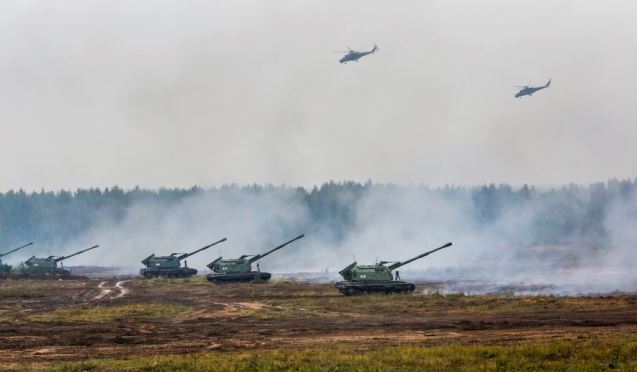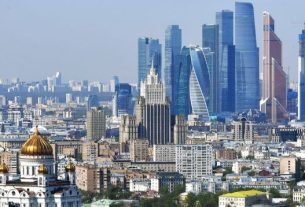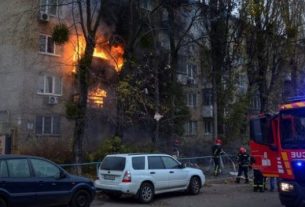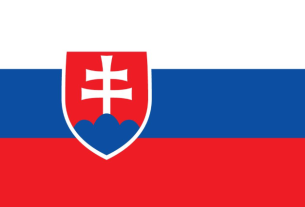Russia’s military has been ordered to pull out of the Ukrainian city of Kherson, the only regional capital it captured after invading in February.
Russia’s commander in Ukraine, Gen Sergei Surovikin, said it was no longer possible to keep supplying the city.
The withdrawal means Russian forces will pull out entirely from the western bank of the River Dnipro.
It is a significant blow as Russia faces a Ukrainian counter-offensive.
The military’s top brass were seen making the decision on Russian state TV, with Gen Surovikin reporting on the situation on the ground in Kherson.
President Vladimir Putin did not take part in the staged event. The architect of Russia’s failing war in Ukraine appeared to have left the announcement to his generals.
It was Mr Putin who announced Russia’s annexation of Kherson, and three other occupied regions, at the end of September.
“In these circumstances, the most sensible option is to organise the defence along a barrier line along the river Dnipro,” Gen Surovikin told the meeting.
Russian forces swept across southern Ukraine from annexed Crimea at the start of the war, seizing Kherson city in early March.
But their decision to pull back across the Dnipro river was treated with caution by Ukrainian officials.
“Actions speak louder than words,” said presidential adviser Mykhailo Podolyak.
“We see no signs that Russia is leaving Kherson without a fight… [Ukraine] is liberating territories based on intelligence data, not staged TV statements.”
Pro-Kremlin war bloggers were less cautious, with one known as War Gonzo condemning the retreat as a “black page in the history of the Russian army”.
There is no way for Moscow to depict this withdrawal as anything other than a humiliating setback – its biggest loss since Ukraine recaptured large areas around the city of Kharkiv in the early autumn.
And it further undermines Russia’s announcement that it was illegally annexing Ukrainian provinces, including Kherson, which it said would remain Russian territory “forever”.
But, as Mr Podolyak warned, there are several reasons for Ukraine to be cautious.
The first is that retreating Russian forces will most likely have left behind mines and booby traps for the advancing Ukrainians.
The second is that Russia, having withdrawn its troops to the east bank – and having “evacuated”, sometimes by force, large numbers of civilians – will now be tempted to bombard Kherson at will.
Finally, the pattern emerging in this war is that every time Russia suffers a major military setback it responds by further punishing the civilian population.
Expect more missile and drone strikes to make winter for Ukrainians as miserable as possible.
The withdrawal was announced shortly after Russian media said the deputy leader of Kherson, Kirill Stremousov, had been killed in a car crash.
Seen as one of the main cheerleaders of the occupation of Kherson, he had warned only six days ago that it was “most likely” that Russian forces would have to cross to the eastern bank.
Although the Ukrainian advance had slowed in recent weeks, Russia’s supply lines across the Dnipro had become increasingly difficult after the few bridges across were destroyed by Ukrainian missiles.
Before the withdrawal, Russia moved thousands of civilians out of the city by boat, in what Ukraine condemned as a forced deportation.
Gen Surovikin – previously a notorious commander of Russia’s recent operations in Syria – was appointed to take over the running of Russia’s invasion a month ago.__BBC.com





